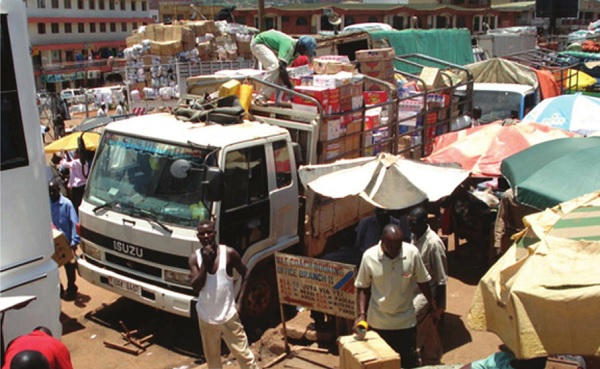
Coronavirus catastrophe: How it could plunge Uganda’s economy into crisis
Kampala, Uganda | PATRICIA AKANKWATSA & AGENCIES | On a normal day, the Kikuubo trading hub in downtown Kampala buzzes as thousands of traders and customers with wads of cash haggle over prices of all kinds of merchandise, most of which are Chinese made.
The traders alongside their boys are on hand to help customers pack and load goods onto waiting trucks ready for delivery to all corners of Uganda and the neighbouring countries of Rwanda, Burundi, Tanzania, South Sudan and eastern DR Congo.
Kikuubo’s growing commercial value as Kampala’s main trading center is demonstrated by the number of commercial banks that have recently set up shop there. Even Uganda’s only business-focused television (Smart Tv) recently set up its studios there. Some economists The Independent talked to say that slightly over 40% of Kampala’s GDP (60% of the national GDP) is generated here.
But for weeks now, ever since the Coronavirus became a global issue, traders in Kikuubo have become stranded and frustrated over loss of business. They say they are finding it hard to replenish their stock and they all blame the rampaging pandemic which is sending the global economy into a tailspin.
The story is not any different for thousands of other traders in the nearby high-rise shopping arcades. Yanga Samba deals in clothing, footwear and phone accessories and he imports most of his merchandise from China.
He says his stock has already dwindled and sees no hope in sight for re-stocking soon. “In response, we have increased prices of most items by 10% -30%,” he says, “For example a dozen of jean trousers used to go for Shs300, 000. Now we are selling it at Shs330, 000.”
“We really have no choice. The factories are closed. Suppliers are not working. There isn’t any business going on because goods are stuck in China,” he adds in reference to the lockdown in China.

Another trader, Balaam Bahumure, who imports clothes from China, says his container of clothes, worth millions of shillings is stuck in the southwestern Chinese city of Chongqing.
“My container has been stuck in China for the past two months. I am traveling to Nairobi soon to try and identify other suppliers but these are expensive compared to those from China,” he said.
Like many other sub-Saharan African countries, Ugandan traders have over the last two decades chosen China as their favourite destination when it comes to trading in all sorts of merchandise including machinery, electronics, clothes and even construction materials. Merchandise from Chinese factories is relatively cheaper compared to other Asian countries like Taiwan, Vietnam and Thailand, the traders say.
From down-town Kampala to the most far-flung market and shop in Uganda, trade in Chinese products has eased people’s access to household commodities and goods. However, the outbreak of the Coronavirus (COVID- 19) in the Chinese city of Wuhan that continues to spread around the world has caused panic among the Ugandan traders.
The virus had killed 3,131 people, 48,438 recovered and 92,236 cases reported as at March.03, according to the World Health Organisation.
The virus has particularly ravaged China, South Korea and Japan – the Asian countries critical in the supply chain of key products. Importers in developing countries including Uganda are finding it difficult to buy finished products and other raw materials for manufacturing firms.
Observers of Uganda’s economy say unless the pandemic is contained soon, the economy could easily run into a crisis especially if prices for Chinese-made products rise.
 The Independent Uganda: You get the Truth we Pay the Price
The Independent Uganda: You get the Truth we Pay the Price



